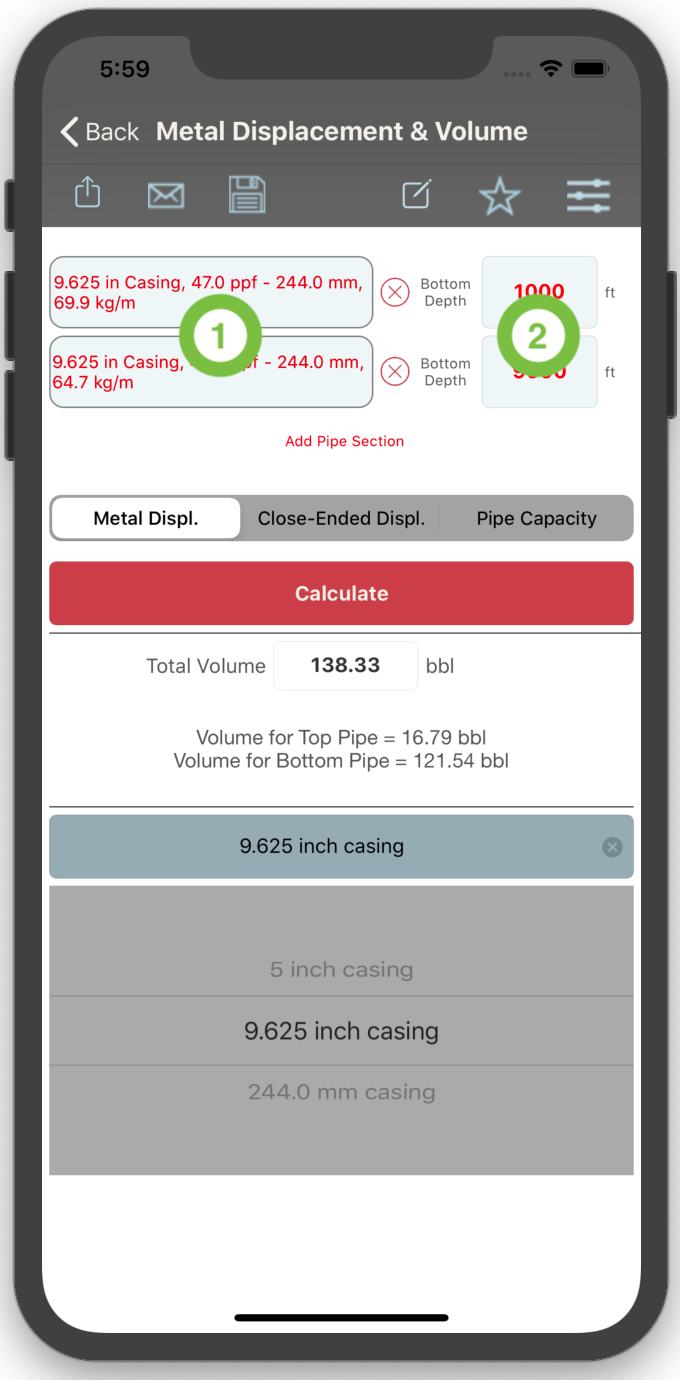Metal Displacement - Data Entry | Pipes (Oilfield)
The "Metal Displacement & Volume" module allows the quick computation of the metal displacement of the open-ended and closed-ended pipe strings as well as the computation of the inner volume of the string.
A tutorial video for data entry and calculation is available here.
Up to three (3) pipe sections can be entered in a single string (Top, Middle and Bottom pipe sections).
The depths against each section represent the depth of the bottom of the section (NOT the length of the section).
Also, each pipe sections can be of different type (casing, DP, Tubing or Coiled Tubing), sizes (OD and ID), wall thickness and weight.
Pipes (Oilfield) includes a database of all API casings, drill pipes and tubings. It also includes the most common coiled tubing and open hole sizes. The OD, ID, wall thickness and weight of the selected pipe can be accessed by tapping the “Select Pipe” button (1). (please refer to “Section Selection” section of this manual)
To clear a wrong entry, tap the ⊗ buttons next to the corresponding “Select Pipe” button (1) or load from the “Select Pipe” screen a different pipe in to the section.
It is optional to enter all three pipe/OH sections in the string i.e. only one or two pipe sections can be entered.
A mix of casing, drill pipe, tubing and coiled tubing can be enter in any of the three pipe sections.
Note: the pipe sections are entered from top to bottom. If only one section is to be calculated, then it should be entered in the top most section.

Once the pipe/OH sections are selected, the end-of-pipe depth for each section should be entered in the corresponding textfield (2).
If only one or two pipe sections are entered, the corresponding end-of-pipe depth for these pipe sections should be only entered. The calculator will consider the depth of the none-used sections similar to the depth of the last entered section (Top or Middle section).